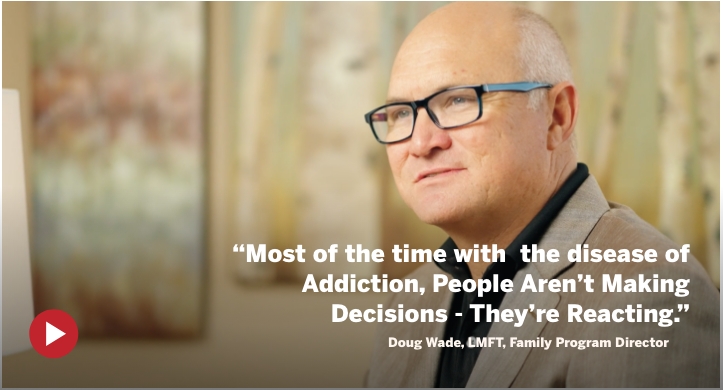Austin, TX Alcohol Rehab & Addiction Treatment Center
Austin, Texas is one of the closest major cities to Burning Tree Lodge, our addiction treatment center. We’re dedicated to serving the city and the surrounding areas with our specialized short-term inpatient alcohol rehab program.
Our approach is tailored to meet the needs of both chronic relapsers and those seeking treatment for the first time. As leaders in in-network insurance coverage, we’re committed to making affordable alcohol addiction treatment accessible to Austin families and their loved ones.
Call Us Now: (877) 874-8695
Take the First Step and We Will Cover the Rest
Need Short-Term Treatment for Alcohol Addiction Near Austin?
Our inpatient program offers all of our clients and their families:
- Treatment covered by insurance
- High-quality individualized care
- Simple and stress free admissions process

Why Choose Burning Tree Lodge?
Burning Tree Lodge uniquely offers a long-term plan that extends beyond the short-term inpatient portion treatment. Part of our commitment means that we’re here to guide you every step of the way, answering your questions and addressing your concerns.

Understanding Alcohol Addiction as a Disease
Alcohol addiction, or alcoholism, is a complex disease that doesn’t discriminate – it affects people from all backgrounds in Austin, from musicians to software engineers, healthcare workers to educators.
Families should understand the following about alcohol addiction:
- Alcoholism is a chronic disease, not a moral failing or lack of willpower
- It often co-occurs with mental health issues
- Genetic, environmental, and personal factors all play a role
- Recovery is possible with the right support and treatment
Alcohol Use Trends in Austin, TX
Austin, known for its vibrant music scene, tech industry, and unique culture, also grapples with significant challenges related to alcohol abuse. The city’s drinking culture, often associated with its many festivals, events, and social gatherings, can mask the severity of alcohol addiction issues faced by many residents.
In recent years, Austin has seen troubling trends in alcohol abuse:
- Increased binge drinking rates, particularly among young adults and college students
- Rising alcohol-related traffic incidents and fatalities
- Growing numbers of alcohol-related emergency room visits
- Expanding craft brewery and distillery scene potentially normalizing excessive drinking
These trends impact individuals from all walks of life – from tech professionals to service industry workers, from university students to retirees. The effects ripple through our communities, workplaces, and homes, underscoring the critical need for effective alcohol treatment options.

“Our priority is to get people well by developing ethical treatments rooted in science.”
Eric Button
Executive Director

Dual Diagnosis and Mental Health Support
Treating More than Alcohol Addiction
In Austin, as in many urban centers, we often see alcohol addiction co-occurring with other mental health disorders. Our clinical team understands the complexity of dual diagnosis conditions and the importance of addressing both issues simultaneously.
Some of the most common questions we encounter are: Which came first, the mental health condition or the addiction? Which should be treated foremost?
In our experience, persons with a dual diagnosis respond better to treatment methods that address mental health in conjunction with alcohol use disorder. This integrated approach not only improves recovery outcomes but also enhances overall quality of life.
Burning Tree Lodge Alumni
Family Involvement in Recovery from Alcoholism
Often, our families in Austin are so focused on getting help for their loved one struggling with alcohol that they begin to neglect their own needs. In most cases, families unknowingly begin to contribute to the problem through codependency and enabling, even though their intentions are born out of love and concern.
Alcohol addiction doesn’t just affect the individual; it impacts the entire family system. Our family program is designed to educate and support Austin families throughout the treatment process. We’ve found that recovery improves when all those affected by alcohol addiction accept help and take action to heal.

“Our goal at Burning Tree Lodge is to embrace the family system as quickly as possible, because we believe that early intervention for the family is critical to the recovery process.”
Doug Wade, LMFT
Family Program Director
Aftercare & Relapse Prevention: Transitioning Back to Austin
Recovery doesn’t end when treatment does. We put significant emphasis on aftercare planning for our Austin clients, helping them build a solid foundation for lasting recovery as they transition back to city life.
Aftercare planning may include several elements:
- Ongoing therapy sessions
- Alumni support services & weekly meetings
- Developing a relapse prevention plan specific to Austin’s drinking culture
- Finding sober activities and communities in the Austin area
We also maintain an active alumni network, providing ongoing support and connection for our clients as they navigate their new sober lives in Austin.
Embracing Life Without Alcohol in Austin
One of the beautiful aspects of getting sober in Austin is the opportunity to rediscover the city through fresh eyes, without the haze of alcohol. Austin’s diverse culture and vibrant community offer numerous ways to enjoy life alcohol-free:
- Explore outdoor activities at Zilker Park or the Barton Creek Greenbelt
- Enjoy live music at alcohol-free venues or events
- Participate in Austin’s thriving fitness and wellness scene
- Discover new hobbies through various classes and workshops offered around the city
Recovery isn’t about giving up your life – it’s about reclaiming it. And Austin offers countless ways to do just that, all without alcohol.
Take the First Step: Reach Out for Help
Recognizing that you or a loved one needs help with alcohol addiction is often the hardest part. Making the decision to reach out to a treatment center like Burning Tree Lodge can be intimidating, but doing so is the first step to getting the support you need for your family and your loved one.
Whether you’re ready to start treatment or just want to learn more about your options for alcohol rehab in Austin, we’re here to help. No judgment, no pressure – just compassionate support and expert guidance from a team that truly understands the challenges of alcohol addiction and the joy of recovery.
Katy H.
Burning Tree Lodge Alumni
A Nationally Recognized Name Right Here in Texas
Burning Tree Lodge is regularly featured on some of the Nation’s most prominent and well-known media outlets.


















